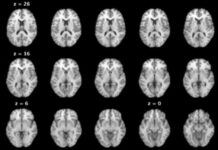
Last week, we started with an overview of what your Omega Index is, gave a taste of why it’s important, and discussed why our flippered friends at Dolphin Research Center have an Omega Index roughly eight times the national average for humans. This week, the journey continues…
How to increase your Omega Index:
- Incorporate omega-3-rich foods: Include fatty fish such as salmon, mackerel and sardines in your diet at least twice a week. These are excellent sources of EPA and DHA, the primary components of the Omega Index.
- Supplement wisely: If it’s challenging to obtain enough omega-3 fatty acids through diet alone, consider taking high-quality fish oil supplements. Look for supplements that contain both EPA and DHA in adequate amounts.
- Choose omega-3 fortified foods: Incorporate foods fortified with omega-3 fatty acids into your diet, such as fortified eggs and yogurt. These options offer an easy way to increase your omega-3 intake.
- Limit omega-6-rich foods: Reduce the consumption of processed and fried foods, which are often high in omega-6 fatty acids. Instead, opt for whole, unprocessed foods like fruits, vegetables, and nuts.
- Balance your Omega-3 and Omega-6 ratio: Aim to maintain a balanced ratio of omega-3 to omega-6 fatty acids in your diet. This can be achieved by minimizing the intake of processed vegetable oils like corn, soybean and sunflower oil, which are rich in omega-6 fatty acids.
What’s the research saying?
Omega-3 fatty acids, particularly EPA and DHA, exert potent anti-inflammatory effects in the body. Chronic inflammation is associated with an increased risk of dementia and cognitive decline. By reducing inflammation, a high Omega Index can help protect against neurodegenerative diseases like Alzheimer’s and vascular dementia.
Omega-3 fatty acids support healthy blood flow to the brain by promoting the dilation of blood vessels and reducing blood viscosity. Adequate blood flow ensures that the brain receives essential nutrients and oxygen, which are crucial for maintaining cognitive function and preventing cognitive decline.
EPA and DHA play a crucial role in the structure and function of brain cell membranes. They are also involved in the synthesis of neurotransmitters, which are chemical messengers that facilitate communication between brain cells. By optimizing neurotransmitter function, a high Omega Index can support better cognitive function and reduce the risk of cognitive disorders.
High levels of omega-3 fatty acids are associated with a reduced risk of cardiovascular disease, including heart attacks, strokes and arrhythmias. Omega-3 fatty acids help lower blood pressure, reduce triglyceride levels and prevent the formation of blood clots, all of which contribute to a healthier heart and circulation.
Omega-3 fatty acids possess antioxidant properties, which help protect brain cells and blood vessels from oxidative damage caused by free radicals. Oxidative stress is implicated in the development of cognitive decline and cardiovascular disease. By scavenging free radicals and reducing oxidative stress, a high Omega Index can help maintain brain health and cardiovascular function.
Now that you know what you know, do you think it’s any strange coincidence that dolphins are among the smartest mammals with a low mortality rate? Me neither.
Cheers, and pass the sardines.
References:
Harris, W. S., & von Schacky, C. (2004). The omega-3 index: a new risk factor for death from coronary heart disease?. Preventive medicine, 39(1), 212-220.
Sinn, N., & Howe, P. R. (2008). Mental health benefits of omega-3 fatty acids may be mediated by improvements in cerebral vascular function. Bioscience hypotheses, 1(2), 103-108.
Stark, K. D., Holub, B. J., & Lloyd-Wright, Z. (2016). Omega-3 fatty acids: recommendations for competitive athletes. Sports Medicine, 46(8), 1035-1056.



















